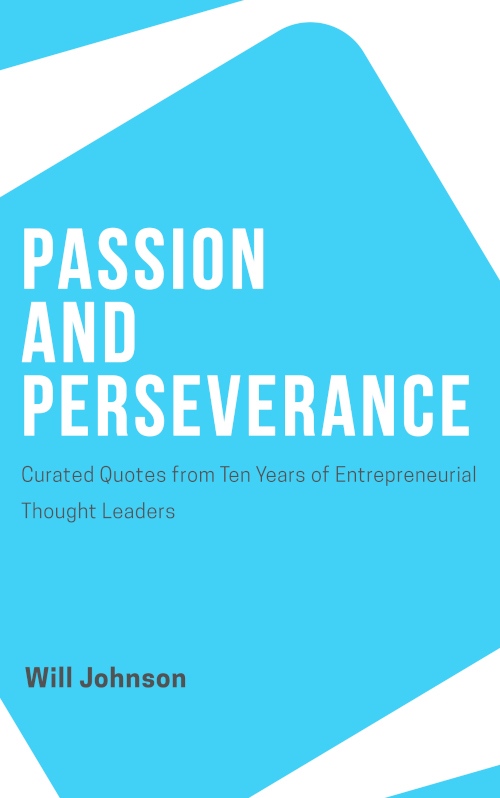Title: There is Always a Way Forward
Date: 2013-10-02
Speaker: Matthew Rabinowitz (Natera)
Link: Entrepreneurial Thought Leaders
Choose a problem that is really worthy of you and several years of your life.
Be a little bit irreverent.
Work out the things you want to do for the sake of doing them–because they make you feel good.
The more specific a class is the less useful it is going to be to you.
You can open doors yourself.
There is always a way. You just need to have a team that will stick with you and find it.
Let go of your ego and look at the market.
Pick a solution that is in your own control.
Manage your own destiny as much as possible.
Go to investors as early as you can.
Try to find the balance in everything.
There is a good side to every bad thing that happens.
Title: Realizing Innovation at Enterprise Scale
Date: 2013-10-09
Speaker: Padmasree Warrior (Cisco)
Link: Entrepreneurial Thought Leaders
Technology has the incredible power to change how business gets done.
There were 1,000 devices connected to the Internet in 1984. A million in 1992. A billion in 2008. 12.5 billion in 2010. They expect roughly 50 billion devices by 2020.
Many of the connected devices will be sensors.
In 2012 we created more data than in the previous 5,000 years combined.
The next wave of the Internet is “the Internet of everything.”
The next wave is to connect people, processes, data, and things.
Usability and user experience are two slightly different things.
Cisco expects one to two percent of revenue growth every year to come from acquisitions.
First golden rule of acquisition is if the vision and strategy aligns.
Second golden rule is to look for things that are disruptive.
Have an influence platform.
Leaders need to be community builders.
You need to separate learning from education.
Learning is going to be a massively scalable platform.
Title: You Have to Break the Egg
Date: 2013-10-16
Speaker: Cyriac Roeding (Shopkick)
Link: Entrepreneurial Thought Leaders
Mobile and shopping are a really good combination.
The cellphone is the only computer that most people in the world have.
Mobile has different rules than other platforms.
There is a big difference between a feature, a product, and a company.
Conversion rates are very good in the physical world.
The chicken and egg problem is the number one problem for entrepreneurs.
The number one job of the entrepreneur is to break the egg.
The second thing an entrepreneur needs to do is create assets and reduce risks.
Everybody needs to know what their passion is.
First thing to do is to ask yourself, “whose problem does this solve?”
If you have an awesome idea with a bad team you’re done.
Culture is highly underrated.
Culture is a decision framework.
Culture is a wind that blows everybody in one direction.
When in doubt don’t hire.
Title: Revel in the Adventure of New Ideas
Date: 2013-10-23
Speaker: Steve Teig (Tabula)
Link: Entrepreneurial Thought Leaders
Apply everything you know about everything to every problem you encounter.
Always challenge your assumptions.
It is not enough to have great ideas. Infrastructure matters.
Redirect your fear.
Surround yourself with great teams.
Try to solve a problem that matters and whose solution matches your particular skillset.
Try to solve a problem whose solution will help you solve other problems down the road.
Making a decision clearly and quickly often matters more than making the right decision.
Figure out what you want to be and go after that. If the environment changes then change course a little bit.
It is easy to get paralyzed by trying to gather too much data too soon.
The most fun you can have at work is at a “change the world” startup.
If you change the world the money is going to come.
Have fun.
Pick something you love.
Always try your best.
Title: A World of Changemakers
Date: 2013-10-30
Speaker: Bill Drayton (Ashoka)
Link: Entrepreneurial Thought Leaders
The world is defined by change.
Change begets and accelerates change.
If you help a really powerful idea or entrepreneur get started they are not going to stop. You are helping launch the institution.
The goal is to change the world for the good.
If you’re not a changemaker the last thing in the world you want to see is a problem or opportunity because you can’t do anything about it.
Group play is a good way for kids to practice empathy.
The world is complicated.
The rate of change is going up exponentially.
We’re at a point where rules don’t exist.
There is a new paradigm for education.
You can’t have a team where everybody is telling everybody else what to do.
People can’t afford to have you on your team if you aren’t a changemaker.
Everybody has to be a changemaker.
A changemaker is the most powerful thing you can be.
Society wide it is important for us all to work together.
Entrepreneur means pattern change. It does not mean direct service.
Every type of person is in education.
Title: Thirsting for a Life of Service
Date: 2013-11-06
Speaker: Scott Harrison (charity:water)
Link: Entrepreneurial Thought Leaders
No man or woman should be drinking dirty water in this world that we live in.
800,000,000 people right now don’t have clean water to drink.
Half of the schools in the world don’t have clean water or toilets.
Water, sanitation, and hygiene are incredibly linked together.
Water changes everything.
You can open the NASDAQ (and NYSE) just by asking.
We can turn our birthdays into giving moments.
Be solution agnostic. Always look for the right solution for the community.
Title: Opportunities Abound in the Big Data Space
Date: 2013-11-13
Speaker: Mike Olson, Ping Li (Cloudera)
Link: Entrepreneurial Thought Leaders
Recruit the family.
Volume, variety, velocity are measures of data.
Machine learning requires good systems for scaling out broadly.
Forecasts are nine billion people on the planet by 2050.
Most businesses touch open source software in fundamental ways.
Services companies don’t drive real high margins.
There are way too many awesome people in the world.
The only way to own a long term, independent company is to own proprietary IP.
There is always something that should be scaring the crap out of you.
The incentives in the credit industry are very much aligned with fraud detection.
Amazon is better at security than 99% of companies on the planet.
We’re going to be better as a society with the ability to capture and process data.
The quality of people in the organization is all that matters.
Really great people gravitationally attract really great people.
Title: The Path to More Inclusive Innovation
Date: 2013-11-20
Speaker: Sharon Vosmek (Astia)
Link: Entrepreneurial Thought Leaders
This is a time of profound ability to have an impact.
You have to dare to look at everything with a critical eye because everything is under change, challenge, and question.
Innovation matters on a global level and a personal level.
Get comfortable with uncomfortable.
When everybody is equally unsure you get exciting things happening.
Title: Accelerating Real Change in Healthcare
Date: 2014-01-15
Speaker: Halle Tecco (Rock Health)
Link: Entrepreneurial Thought Leaders
The healthcare system traditionally hasn’t done a great job welcoming diverse talents into the space.
It is notoriously closed.
The healthcare system likes to think it is unique. That it is a system unlike other systems we have experienced.
Albert Einstein: “We cannot solve our problems with the same thinking we used when we created them.”
We as consumers only pay for 12% of the healthcare we consume out-of-pocket.
Our employers are who is paying (21% of healthcare spending).
Employers paying is a byproduct of wage freezes in World War II.
The average family, in their premiums, spends $22,000 a year.
Incentives really do matter.
Learning to sell is one of the best skills you can have.
As an entrepreneur you’re always selling.
There is a lot of money in hospitals to deploy better tools.
The legacy healthcare technology companies have set the bar so low.
You need to find out where the value is being added.
Title: The Gospel of a Lean VC
Date: 2014-01-22
Speaker: Dave McClure (500 Startups)
Link: Entrepreneurial Thought Leaders
Experience is what you get when you don’t get what you want.
Microfunds are less than $100 million.
Less than $10 million funds are typically angel funds.
Product development and marketing development are pretty inexpensive.
Now is the best of times but it will probably keep getting better.
There is really high friction in payments and web capable devices in some geographies.
First stage ($25k-$100k) enough to cycle for six months for 2-3 founders.
Your job is to minimally solve the worst case problem.
Be functional where there are no competitors.
With competitors you need to be great. Much better than the nearest incumbent.
When you are doing product development you need as tight a use case as possible.
Product is the mirror to the soul of the team.
Most innovative companies are small. Most global GDP is produced by small companies.
Fun is mission number one.
A lot of venture capital is over-glorified.
The economics of international startups are going to be as good as the U.S. in the next five to ten years.
Title: Moving from Hubris to Confidence
Date: 2014-01-29
Speaker: William Hsu (MuckerLab)
Link: Entrepreneurial Thought Leaders
When you’re naive you can’t identify talent when you see it.
In the land of the blind the one-eyed man is king.
We all have responsibilities.
Chase your dream but understand you might not be a Jack Dorsey, Mark Zuckerberg, or Bill Gates.
Building a company is very different than starting a company.
Building a company is on average a seven to ten year road.
Accumulate skills and experiences–not titles.
Networking is about accumulating trust from others.
You can start a company this instant.
There is tons of access to capital.
The way to find success is to have multiple mutations.
We can all change the world.
We can all make a difference.
Engineers are what fuels the fire to drive the innovation cycle.
You don’t have to be a unicorn to build a unicorn.
Accelerators are for people who are kind of lazy.
Everybody can go and find a mentor.
Have a really long view.
Share the credit.
Go be a unicorn.
The key to success is to gain allies.
We all have one life to live.
The chance of success (in Silicon Valley) will be infinitely higher than anywhere else in the world.
Accumulate applicable skills and apply them to the business you’re working on.
Take any opportunity to accumulate knowledge.
There is always something you can learn, no matter what job you’re in, that can help you become successful in the future.
Classrooms give you a framework to help you understand the problem you’re facing. What it doesn’t do is help you create a solution to the problem.
The process is more important than the outcome.
Helping other people become successful is actually more fulfilling than making yourself successful.
Title: Shaping the Future of Data
Date: 2014-02-05
Speaker: Gurjeet Singh, Gunnar Carlsson, Ann Miura-Ko (Ayasdi)
Link: Entrepreneurial Thought Leaders
Hypotheses are a subset of a large table. (Gurjeet Singh)
The business is about turning data into knowledge automatically. (Gurjeet Singh)
Keep your eyes open for opportunities for using some bits (of big data) more immediately. (Gunnar Carlsson)
If you’re an engineer you know math but you know you don’t know math very well. (Garjeet Singh)
In computational fluid dynamics you pretty much solve simple problems over and over again. (Garjeet Singh)
Not only do you need to be smart but you need to want to do something, to carry something out, to actually solve a problem as opposed to writing a paper. (Gunnar Carlsson)
There is a huge amount of available math out there. (Gunnar Carlsson)
There is a bunch of low hanging fruit in math. It is worth spending some time trying to fish it out. (Garjeet Singh)
There is a whole spectrum. On one end is the theory and on the other end is the application. (Gunnar Carlsson)
You want to be able to prototype things quickly and test against actual applications. (Gunar Carlsson)
People creating large data sets might not be the best people to analyze them. (Garjeet Singh)
Get out of the building. (Garjeet Singh)
For any action you should be able to say what you’re going to do with it. (Garjeet Singh)
Big data is a meaningless term. (Garjeet Singh)
It is okay to have a solution and search for a problem. It can be made to work. (Garjeet Singh)
Get rid of the notion there is bad data. (Ann Miura-Ko)
Title: Scaling Up Excellence
Date: 2014-02-12
Speaker: Bob Sutton (Stanford)
Link: Entrepreneurial Thought Leaders
If anybody ever says to you that they’ve solved all of your problems for scaling they’re lying to you.
The people who scale badly are so focused on running up the numbers that they don’t realize they need to slow down and spread beliefs that propel scaling.

People need to know when to hit the brakes so you can accelerate scaling later.
Focus on hiring the right people.
When firms scale effectively (in hiring) they think about the mindset and not just the footprint.
The kind of mindset you need to scale an organization is going to vary widely from organization to organization depending on what the intent is.
The best organizations have the right mindsets for them.
Have relentless restlessness.
The hallmark of organizations that spread excellence is a feeling of accountability.
To change human behavior a rational argument won’t work. First get the emotions cranked up then link it to a tangible set of solutions.
Live a mindset. Don’t just talk about it.
What really changes the deep-seated beliefs we have is what our behavior is.
No matter what people are saying keep them moving forward.
As systems and projects get bigger you have to add more complexity.
Wait for things to crack a little bit but not break.
The purpose of hierarchy is to destroy bad bureaucracy.
As teams get to ten people you spend more times on organizational chores and less time on work.
A deep pocket of excellence spreads from one place to another.
Bad interactions pack five times the whop as good interactions.
Get rid of the bad first.
The most effective groups take the path of most resistance.
A lot of what a leader’s job is to change attention from how much today sucks to how great it will be in the future.
Leadership is a learned skill that most, but not all, people can learn.
Leadership is a complicated thing.
Know when to not give a shit.
Title: The Music Industry Unplugged
Date: 2014-02-19
Speaker: Cameron Strang, Nate Ruess (Warner Bros. Records)
Link: Entrepreneurial Thought Leaders
(Labels) are looking for talented people who they think will connect with an audience. (Cameron Strang)

One of the real influences of technology on music is the way people experience it. (Cameron Strang)
The record industry has gotten smaller but the music industry as a whole has gotten bigger. (Cameron Strang)
We have lots of problems and we have lots of opportunities. (Cameron Strang)
There is only so much time in the day. (Cameron Strang)
Be flexible and willing to take risks. (Cameron Strang)
Everybody knows somebody. (Cameron Strang)
The challenge is to create a real, sustainable business and business culture that can help drive us into the future. (Cameron Strang)
Talent is very, very important. (Cameron Strang)
Talent finds its way. (Cameron Strang)
Title: A True Model for Embracing Change
Date: 2014-02-26
Speaker: Hemant Shah (RMS)
Link: Entrepreneurial Thought Leaders
Recognize one’s own limitations.
Know when it is okay to ask for help.
Invest in new ways to add value.
Often it is not the customers and market that votes. Often is is the employees and your colleagues that buy into the rationale for change.

There is more to life than social media technology companies.
It is okay to have heroic aspirations.
Mission matters.
The really big things that matter sometimes take time.
Take the time to invest in your own learning and development and to grow as a person.
Have the humility to recognize how little you know.
Don’t over-intellectualize the strategy.
Engage people as human beings.
The status quo is not risk free.
Title: Acceleration Through Community
Date: 2014-03-05
Speaker: Cameron Teitelman, Joseph Huang, Milt McColl, Smita Saxena, Tina Seelig (StartX)
Link: Entrepreneurial Thought Leaders
When you’re building a company you need to learn a lot of practical things.
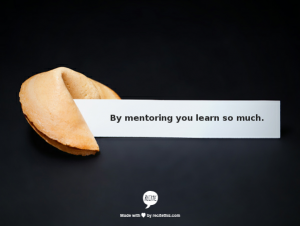
StartX is a really good filter for the kinds of people you want to be working with and that can help elevate your business down the line.
Motivation and passion are the number one criteria.
The code is to help out your fellow co-founders.
By mentoring you learn so much.
Take the time to get to know the other founders in your session.
The most successful leverage a group around them to be even more successful.
Startup companies are roller coasters and you’re going to spend a lot more time on the downside of that roller coaster.
There has to be perseverance.
As a founder you have to be okay with taking risks and thinking of failing as learning.
Have humble confidence.
Title: Be an Authentic Entrepreneur
Date: 2014-04-09
Speaker: Tristan Walker (Walker and Company)
Link: Entrepreneurial Thought Leaders
You spend a third of your life learning, a third of your life earning, and a third of your life returning.
If you put returning before earning you won’t be able to scale returning.
One thing I learned is the important of authenticity of your brand.
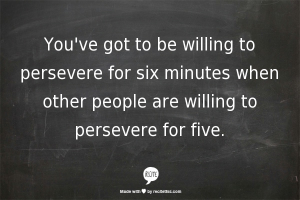
Brand is not what you say it is. It is what they say it is.
Nobody else should be telling (your) story.
Sometimes it is okay for people to be a jerk.
There are haters everywhere.
Your life is public. You had better take control of it before someone else does.
Every single trial and tribulation you go through is a lesson.
The entrepreneur thing is hard. At times it is amazing. At times it sucks.
You don’t want to have to stress yourself out unnecessarily.
Take your time.
The grass is always greener.
A lot of people think so far into the future that they forget the opportunity that is in the present.
It is all about the product.
As long as you practice very good judgement, and you’re working harder than anyone else, everything will work out for you much better than you would expect.
You’ve got to be willing to persevere for six minutes when other people are willing to persevere for five.
People are generally good.
Title: Education Reimagined
Date: 2014-04-16
Speaker: Sal Khan (Khan Academy)
Link: Entrepreneurial Thought Leaders
What is variable is how long and when you have to learn something and what is fixed is that you have to get to a high level of proficiency.
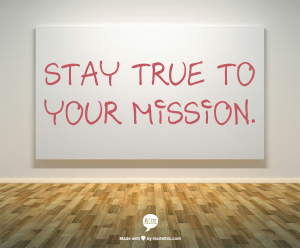
The classroom should be a place for interaction.
When you have ownership over your learning narrative it pays dividends in all classes.
Where there is a genuine desire they are able to move.
The videos are the least important part of Khan Academy.
It doesn’t hurt to have a scaffold. It doesn’t hurt to have a big picture.
Dig deep and be intellectual about things.
Stay true to your mission.
It is healthy to have competitiveness.
Play the long game.
Title: An Emphasis on Excellence
Date: 2014-04-23
Speaker: Morris Chang (TSMC)
Link: Entrepreneurial Thought Leaders

99% of Taiwan companies operate on 1% gross margin.
To be a world-class company you need to have R&D. You need to have marketing.
Learn and think. Both are important.
If you just learn and don’t think you quickly become lost.
If you just think and don’t learn you quickly run out of material to think.
The next big thing is probably “the Internet of things” and wearables.
A CEO’s main job is to bring the outside to the inside. The outside is the customers, shareholders, society and the world. Maximize the inside performance to cope with the outside.
Title: Creativity, Inc.
Date: 2014-04-30
Speaker: Ed Catmull (Disney/Pixar)
Link: Entrepreneurial Thought Leaders
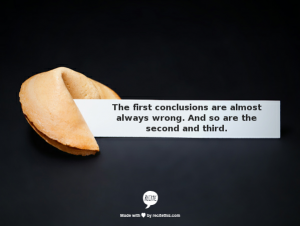
Sometimes you can overreach and get the home run but lose the game.
Learn from mistakes.
You need a lot of candor about what works and what doesn’t work.
There are good reasons why most people hold back and don’t say what they think.
Process is important.
Trust takes a while to earn.
New ideas are fragile.
Sometimes things that are actually true don’t alter our behaviour.
The first conclusions are almost always wrong. And so are the second and third.
You know you’re an integrated company if you can’t draw a line between the technical and the creative.
It is good to work in teams.
You need people, who are candid and have enough experience, who will raise the flag.
Storytelling is the way we communicate with each other.
Managing is a creative act.
Title: Crazy is a Compliment
Date: 2014-05-07
Speaker: Linda Rottenberg (Endeavor)
Link: Entrepreneurial Thought Leaders
The most important backer you’ll need to start any venture is you.
The first part of doing anything different is being misunderstood.
If you’re trying to shake up the status quo then the people following the status quo won’t necessarily embrace your vision.
It is the juxtaposition between doing what is the safe and the known and the unsafe and unknown. It is the juncture between hope and fear. Choose hope.

If you’re not called crazy you’re probably not thinking big enough.
Stop planning. Start doing.
Only 12% of Inc. 500 company conducted formal market research before launch. And only 40% actually created business plans. Two thirds of those ditched them.
Entrepreneurs don’t look at the writing on the wall. They look at the space in between because it is in those gaps where real impact happens.
The greatest entrepreneurs focus on pain points not Powerpoints.
Don’t bet the farm.
Most entrepreneurs are risk minimizers.
Think big but execute small.
Stalking is an underrated startup strategy.
Turbulence is the official climate of entrepreneurship.
Stability is the friend of the status quo. Chaos is the friend of the entrepreneur.
When economies look down entrepreneurs look up.
Give yourself permission to fail.
Act counter to everyone else and counter to your instincts. When everybody is zagging start zigging.
Above all else stay on the entrepreneurial train.
Know your strengths.
Make sure within the team you have different strengths.
The next wave of diplomacy is going to be held entrepreneur-to-entrepreneur (e2e).
If you don’t learn to become a leader then you won’t have anybody to lead.
Being authentic and vulnerable opens you up to many opportunities.
Close doors. You can’t be one foot in and one foot out.
People become paralyzed when keeping too many doors open.
Title: The Road to IPO
Date: 2014-05-14
Speaker: Geoff Donaker (Yelp)
Link: Entrepreneurial Thought Leaders
Venture capitalists have a ten year time horizon.
Two ingredients for you to not sale (when receiving an offer for your company) are that your investors and board have deep enough pockets that they don’t need to sell and that they believe enough in the story and that it is going to be worth more two or five years from now.
When you have a sustainable $100 million in revenue and positive cash flow you’re ready to start thinking about going public.
The roadshow is a two or three week marketing period.
Hot deals are always going to be oversubscribed.
Having a stock price can be distracting.
If you’re going to an earlier stage company you’re going to get a lower cash salary and in exchange for that you get options.
Having a distribution strategy that is cost effective and can scale is harder than it looks.
Title: Do Something You Love
Date: 2014-05-21
Speaker: Leah Busque (TaskRabbit)
Link: Entrepreneurial Thought Leaders
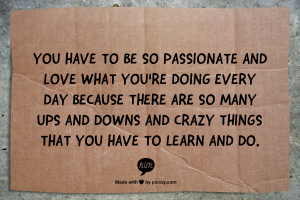
It all comes down to execution.
Never be afraid of somebody stealing your idea. There is so much value in sharing your idea with as many people as possible, getting feedback early on, and then developing it from there.
If you can be open to feedback and connecting with people you never know where that is going to take you.
Create a network around you of mentors and collaborators.
Find the right people that are fun to work with, smarter than you, and can take the concept to another level.
Find people that are as passionate about the idea as you are,
You have to be so passionate and love what you’re doing every day because there are so many ups and downs and crazy things that you have to learn and do.
Startups aren’t glamorous at all. It is just grueling. But if you’re passionate about what you do it makes it worth it.
Every country has different labor laws.
Early on focus on what are the key metrics–not necessarily how good they look.
Title: Adventures in Entrepreneurship
Date: 2014-05-28
Speaker: Heidi Roizen (Draper Fisher Jurvetson)
Link: Entrepreneurial Thought Leaders
Customers want to meet with the highest ranking person they can.
If you’re not doing something hard you’re wasting your time.
The greatest feelings you have are when you get through hard things.
Trust your gut.
The most important thing you’re going to do as an entrepreneur is pick your team.
The vast majority of entrepreneurs succeed or die by the quality of the team.
If you want to be the smartest person in the room about everything you’re going to build a crummy team.
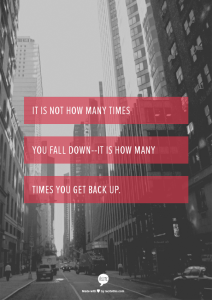
Nothing is a transaction in life. Everything is about relationships.
The art of negotiation is finding the maximum intersection of mutual need.
Life isn’t a zero-sum game.
You are a sum total of your transactions because those form relationships.
Life is really, really random.
Expect that life is going to be messy.
95% of your stress is self-inflicted.
Nothing ever all goes perfectly.
It is not how many times you fall down–it is how many times you get back up.
If you fall down and stay down you will stay down for the rest of your life.
Figure out how to pick up and move on.
Other people have made it through and you’re going to make it through too.
Not all random is bad.
Sometimes bad things can be good.
You can’t sit in your office and wait for someone to bring you an answer.
You have to be your own advocate. When you make mistakes don’t worry about it because nobody is thinking about you as hard as you’re thinking about yourself.
Innovation and creativity can happen anywhere around the product.
The most important thing you have in your life is your time. You can’t make more of it. You’re going to run out.
We live our lives in a serial fashion.
The meaning of life is meaningful work and meaningful relationships.
